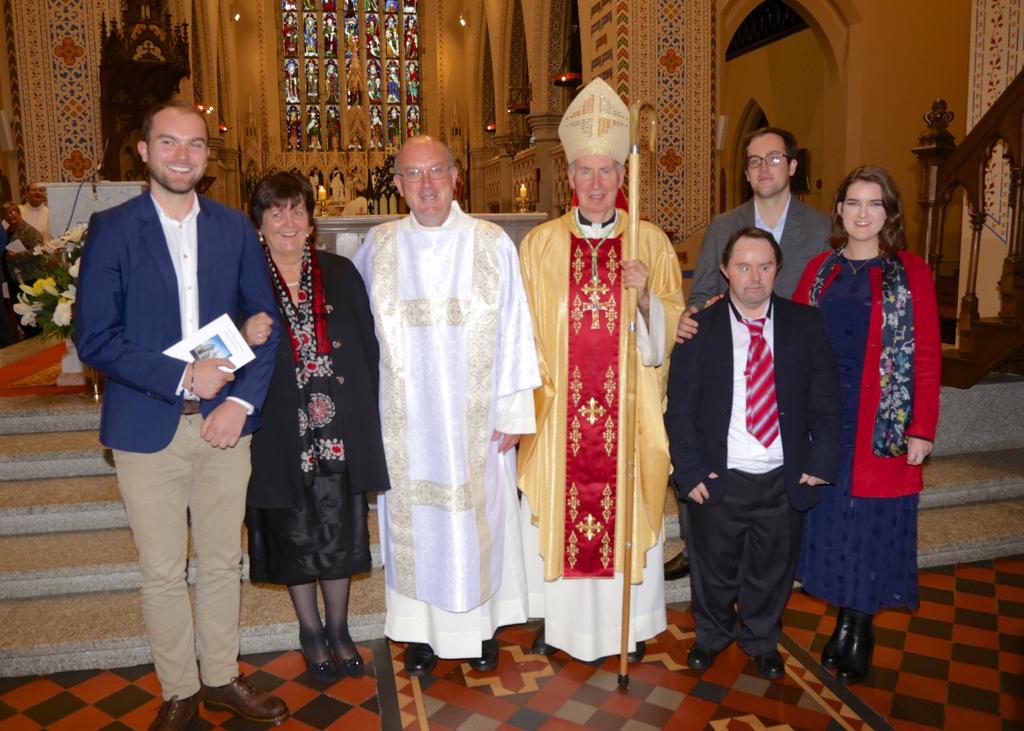On Saturday 5 October, Dermot Davis was ordained as a Permanent Deacon in Saint Aidan’s Cathedral, Enniscorthy by Bishop Denis Brennan. Dermot’s ordination to the Permanent Diaconate is the first in the Diocese of Ferns.
In 2001 the Irish Episcopal Conference received permission from the Holy See to proceed with the restoration of the Permanent Diaconate in Ireland. In 2005 approval was received for the document The Permanent Diaconate: National Directory and Norms for Ireland and this document was subsequently published by the Irish Bishops. These norms were approved for a further five years in 2011.
In March 2009 the Bishops appointed a national training authority to approve and monitor formation for permanent deacons in this country. This body ensures that the preparation of candidates for ordination to the diaconate is in keeping with the expectations of the Church. It is chaired by Bishop Raymond Browne.
Role of a permanent deacon
The first responsibility of the deacon is to be an effective visible sign of Christ who came to serve rather than to be served. Although the ministry of the deacon may be exercised on a part-time basis, he remains at all times a deacon and he is called, in his life-style, to reflect this.
The ministry of the deacon is an expression of his being, as the documents say, an icon of Christ the servant. The areas of ministry which may be entrusted to deacons fall under three general headings: Altar, Word and Charity. They include:
(i) Altar
• Assisting the priest at the celebration of the Eucharist
• Bringing the Eucharist to the sick at home and in hospitals
• The formation of altar servers and of acolytes
• Presiding at Exposition and Benediction of the Blessed Sacrament
• The celebration of Baptism
• Celebrating marriages (with the appropriate delegation)
• Presiding at funerals
(ii) Word
• Proclaiming the Gospel at the Liturgy
• Preaching the homily
• Participating in sacramental preparation programmes
• The formation of readers
• Facilitating study of and prayer with the scriptures
(iii) Charity
• Facilitating the development of lay ministry
• Visiting the sick
• Visiting prisoners
• Visiting the bereaved
• Youth ministry, and the facilitation of peer-ministry among young people
• Promoting awareness of the social teaching of the Church
• The promotion of justice and human rights
• The administration of Church property
For more information on the diaconate see www.catholicbishops.ie.
ENDS


